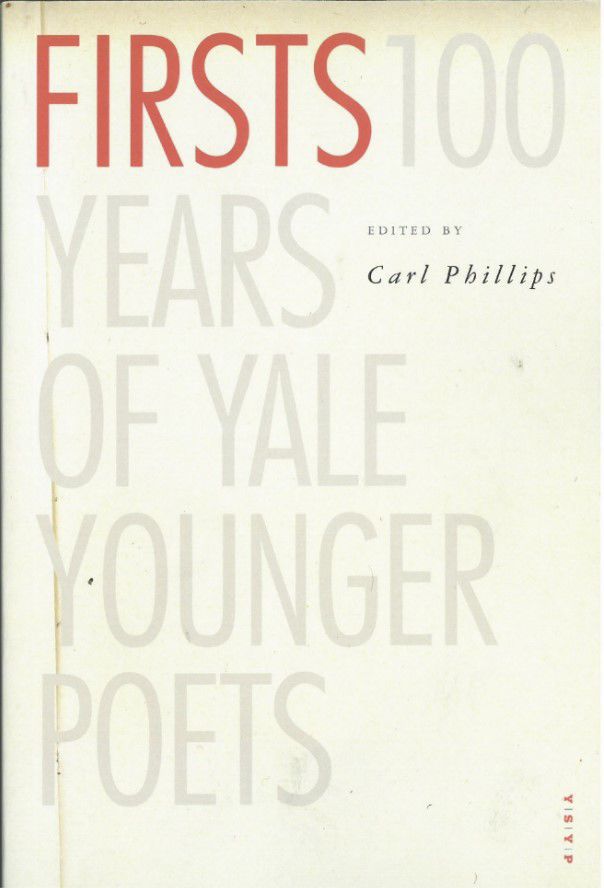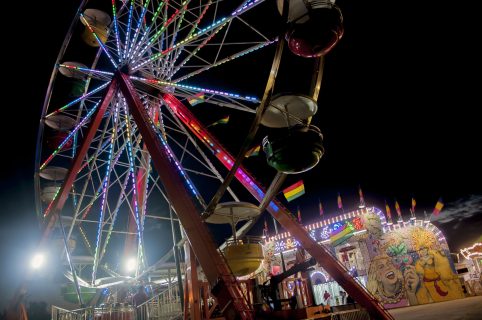Book review: ‘Firsts’
Published 12:00 am Sunday, February 23, 2020

- BOOK REVIEW
“Firsts: 100 Years of Yale Younger Poets” edited by Carl Phillips. New Haven, Conn.: Yale University Press, 2019. 400 pages, $35 (paperback).
If you wish to learn more about contemporary and modern poetry (or if you would like to buy a gift for the poetry lover in your life), it makes sense to start with a good anthology. An anthology offers a sampling from many different poets and can lead a reader to new poets to enjoy. One reason to select “Firsts: 100 Years of Yale Younger Poets” from the many available anthologies is the fact that the Yale Series of Younger Poets has been and continues to be the most prestigious first book award in American poetry. Several poets who went on to greatness emerged as winners of the prize before fully developing the mature styles that made them famous, and it’s interesting to see samples of their early work here. This volume contains well-crafted work by Adrienne Rich before she became a feminist icon, by W.S. Merwin before he shucked off all punctuation and devoted himself to ecology and by James Wright before he honed his perceptions and fully embraced his themes of alienation and loneliness.
Trending
Tracing the development of the aforementioned poets, now all gone except for the influential shadows they cast over contemporary poetry, one can’t help looking at the poems by recent prize winners and feel what, say, Led Zeppelin’s first fans might have felt, that feeling of being present at the start of something important, even earth-shaking. Which of these young poets will go on to greatness? Will it be Eduardo Corral, the first Latino to win the prestigious prize, who visited Western Kentucky University to give a reading after the 2011 publication of “Slow Lightning?” Will it be Airea D. Matthews, who somehow found the time to complete “Simulacra,” the 2017 winner, despite being a single mother with a full-time job?
Sam Gwynn’s “Ballade of the Yale Younger Poets of Yesteryear” begins “Tell me where, oh, where are they / Those Younger Poets of Old Yale / Whose laurels flourished for a day / But wither now beyond the pale?” Gwynn wryly raises a serious question, namely why do some poets stand the test of time while others go out of fashion? This anthology is uniquely positioned to answer that question, as it places forgotten poets such as Lindley Williams Hubbell and Edgar Bogardus alongside poets such as James Tate and Robert Haas who went on to illustrious careers. Language changes over time, as do beliefs. Poetic fashion changes just as fashion in clothing changes, albeit not usually as quickly. Today’s zeitgeist gives way to tomorrow’s, so how can poets write for future audiences as well as for readers of the present? Editor Carl Phillips grapples with that question in his introduction, arguing finally that a compelling, lasting poet is one who can “see the world through a strange lens” and speak with “a voice whose confidence comes in part from how unaware it is of its own strangeness – think Dickinson, think Hopkins.”
In addition to being a valuable resource for anyone interested in American poetry, this book has regional appeal, as it features poems by three Kentucky poets: T. Crunk, whose “Living in the Resurrection” was the 1994 winner of the Yale Younger Poets Prize; Davis McCombs, whose 1999 prize-winning collection “Ultima Thule” was inspired by his work as a tour guide at Mammoth Cave; and Maurice Manning, who won the prize in 2000 for “Lawrence Booth’s Book of Visions.”
While the Yale Younger Poets Prize is the highest profile beginning for an emerging poet, it is not the only route. Readers hungry for good homespun poetry would do well to read the work of WKU graduates who made a splash in the poetry world despite not winning this particular prize. I recommend “The Last Nostalgia” by Joe Bolton, the most famous student of legendary retired WKU professor Frank Steele, as well as “Prelude to Bruise” by Saeed Jones, my own most distinguished former student.
– Reviewed by Tom C. Hunley, professor of English at WKU. His latest books are the poetry collection “Here Lies” (Stephen F. Austin State University Press, 2018) and the expanded second edition of his textbook “The Poetry Gymnasium” (McFarland, 2019). Poems of his are forthcoming in North Dakota Quarterly, Rattle and Waxwing.






